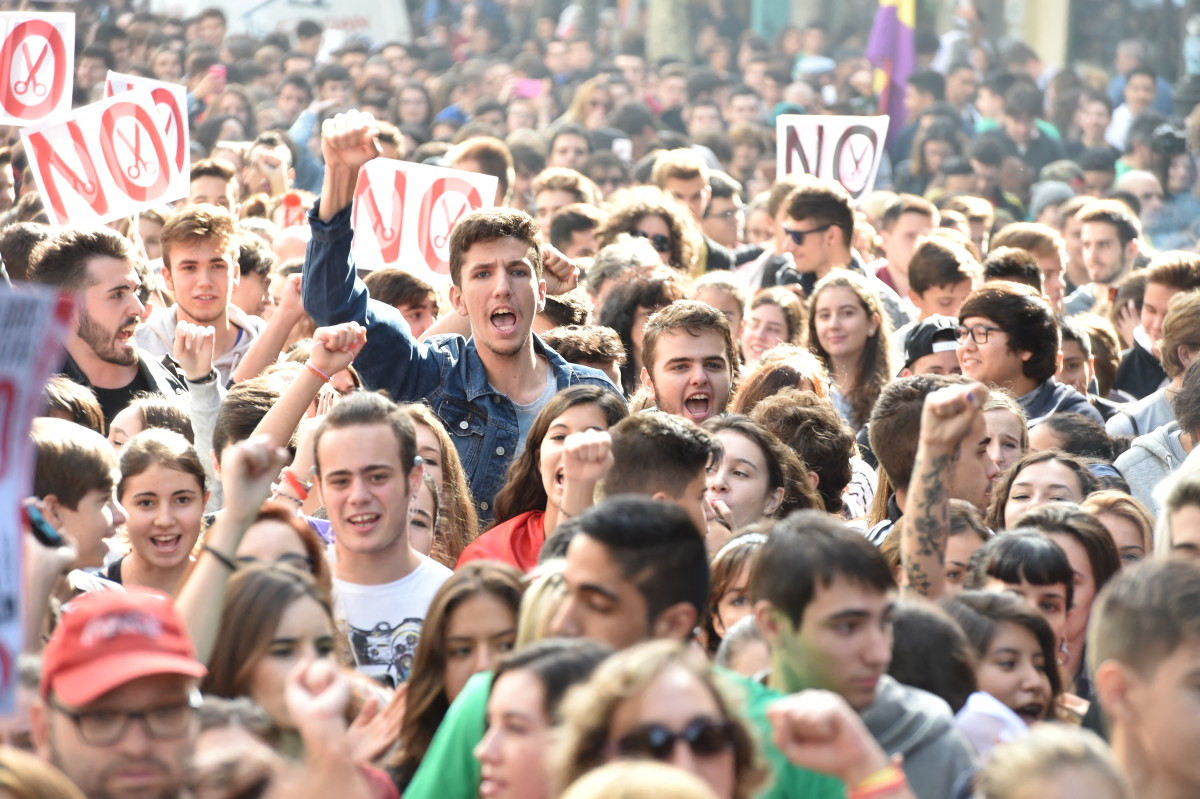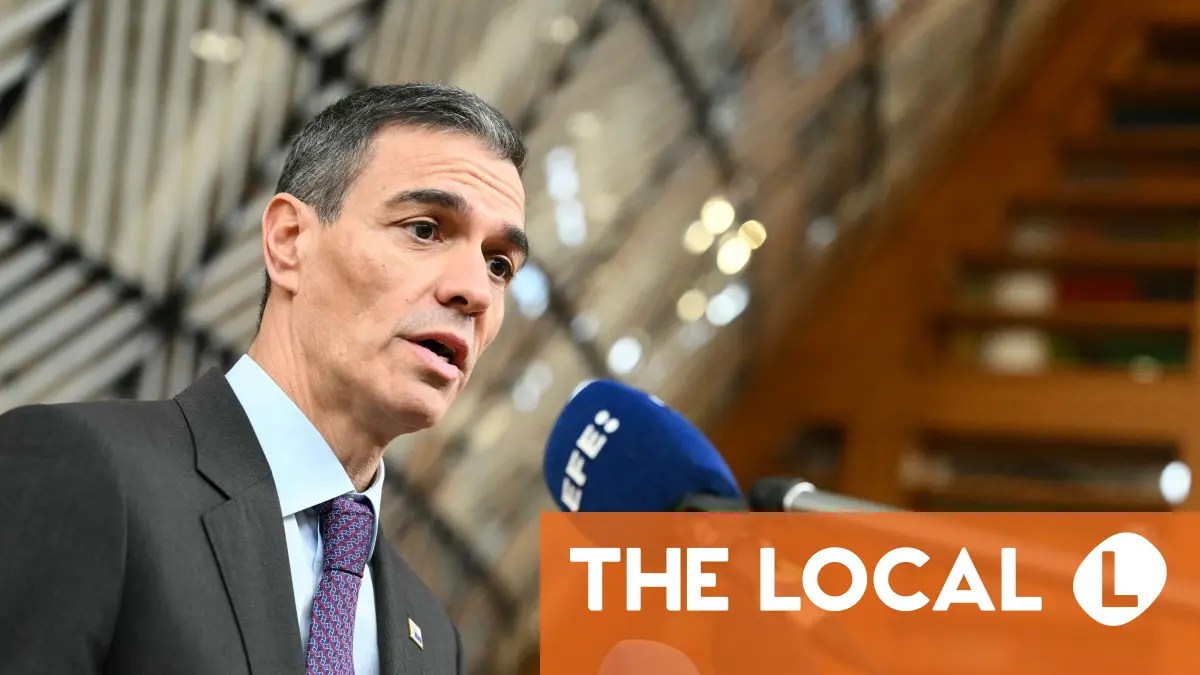Shorouk Express 
Spain’s Minister for Children and Youth has proposed lowering the voting age to 16. But the idea ruffles feathers on the Spanish right and even within its own government coalition, with questions over why and how it could be done.
Reports emerged recently that Spain’s Ministry of Youth and Children is working on draft legislation to lower the voting age to 16 years old.
Minister Sira Rego of the hard-left Sumar party, junior coalition partner to Prime Minister Pedro Sánchez’s ruling Socialists (PSOE), has incorporated the reform into a draft of the future Youth Law, something which is already at an “advanced stage,” ministerial sources confirmed to Spanish daily El Diario.
READ ALSO: ¡Bro, qué cringe! How English now dominates teen talk in Spain
However the idea has long irked the Spanish right, as well as the PSOE itself, meaning it’s far from certain to become law at this point.
There’s a long way left on the legislative road, but, if passed, the reform would significantly expand the electorate to include around one million 16 and 17 year olds. This would mean they could vote in the next general election, which is expected to be held in 2027 in Spain.
Minister Rego has repeatedly expressed her support lowering the legal age for voting as “a way of expanding democracy in Spain.”
“If young men and women want to vote at the age of 16 in the next elections, they will have my support,” she told the Youth and Children’s commission last year.
The Spanish right has repeatedly rejected similar proposals in the past, considering it “opportunistic” and “electioneering.” The former spokesman for centre-right Partido Popular (PP) in the Senate, Javier Maroto, described it as a ploy to “try to win the youth vote for the left.”
Far-right Vox leader Santiago Abascal has gone further, describing the idea as “social engineering.”
Advertisement
Why does Spain want to reduce the voting age to 16?
So, why is the government — or rather, part of the government — trying to do this?
There are a pair of plausible reasons. Firstly, to take the Minister’s reasoning at face value, there’s the democratic argument.
Left-wing parties in Spain have tried on numerous occasions to lower the voting age, not only in Congress from opposition but also while in government. Former far-left coalition partner Unidas Podemos had a policy calling for the lowering of the voting age in its electoral programme back in 2019 and Sumar repeated the formula four years later.
The argument is essentially that younger people, increasingly disenfranchised from mainstream politics, should have a greater say in decisions that will impact their lives in the long-term and not be beholden to the decisions of an ageing population that won’t be around to suffer the consequences.
“It is only fair that those who are going to have their future options limited should participate in the decision-making and in the policies that we are developing now, as they need to face up to those present and future problems in which they are going to play a leading role,” said Sumar’s proposal back in 2023.
In recent years, several parties have attempted to reform electoral law to this end, although generally with the rejection of the right and, as mentioned, often accompanied by strong doubts from the PSOE itself. In 2022, for example, the PSOE’s abstention defeated an initiative by Catalan separatists ERC that sought to lower the voting age.
At that time, Pedro Sánchez’s party did not raise any specific problems about the issue itself on an ideological level but rather said it should be included as part of broader reforms. In fact, youth wings of the PSOE have themselves put forward similar motions in the past.
Advertisement
According to various reports in the Spanish media, however, this procedural opposition seems to be coming up again at the cabinet level. Some close to Sánchez have suggested that Rego is not approaching the proposals in the right way, and that the issue hasn’t even been discussed beyond the Ministry itself.
“Things are discussed, a minister does not decide freely to put it in a draft bill. If they want to move forward along that line, they talk to the president, they talk to Félix Bolaños [Minister of the Presidency, Justice and Relations with the Courts] and decisions are made. It’s all very simple: we don’t go into the details of the decision, it hasn’t been discussed within the government,” a source in the Moncloa told the Spanish press.
Left-wing youngsters?
Then there’s the more nakedly political reasoning — namely the assumption that younger people are more likely to skew left and vote for parties like Sumar or Podemos. By increasing the electorate by a million people, the Spanish far-left potentially has hundreds of thousands more votes to court. This would be tempting for any political party.
For the PSOE, however, in its current political situation the idea may become increasingly attractive even if it makes some in the party a little queasy. As the Sánchez government suffers further wear and tear as it winds down its second term, the idea of boosting left-wing electoral forces ahead of the general election, whenever it comes, may become a tempting way to try and stay on for another legislature by reinforcing the parties to its left and thus improving chances of another coalition.
Advertisement
However, it isn’t entirely so simple. Though it’s generally true to say younger people are more likely to be left wing, it’s a somewhat reductionist view and ignores the growing popularity of far-right Vox among young people, especially young men, in Spain.
Recent polling cited by Onda Cero shows that Vox is now the most favoured party among 18-24 year olds in Spain, beating Sumar, the party pushing to lower the voting age.
Some political pundits in the Spanish media have suggested that the Sumar-backed idea is a response to a growing right-wing, especially far-right, trend among young people, not only in Spain but around the world. It’s unclear how effective this would be in rebuffing it.
However, sources in the government have so far refused to blame the growth of far-right influence among younger Spaniards as a reason for the PSOE’s reticence in backing the idea.
Psephologists consulted by the Spanish media seem to believe that the majority of under-18s would, if given the vote, tend to vote the same way as their families.
Polls suggest that young men vote mainly for the right, while young women vote left.













